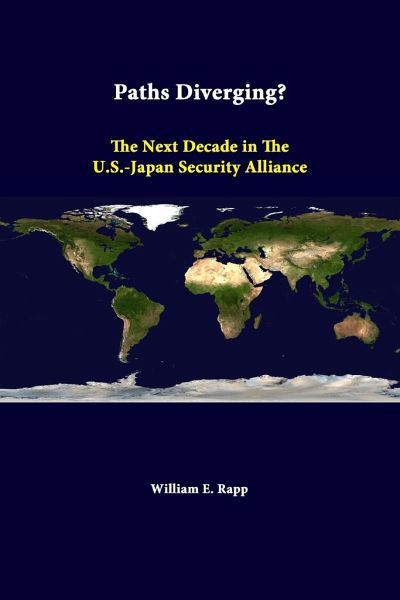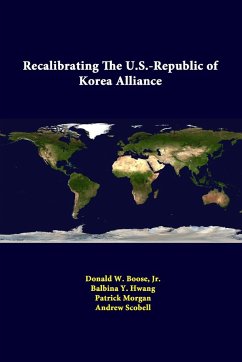
Paths Diverging? The Next Decade In The U.S.-Japan Security Alliance
Versandkostenfrei!
Versandfertig in 1-2 Wochen
18,99 €
inkl. MwSt.

PAYBACK Punkte
9 °P sammeln!
Currently, optimism reigns among managers on both sides of the U.S.-Japan alliance for many reasons, not least of which is the Japanese support for the global war on terror. The Japanese are emerging from 5 decades of military minimalism and dependency and beginning to have serious debates about their role in the world and the efficacy of military power. This internal debate, however, has significant external ramifications for Northeast Asia and the United States. A decade ago, Henry Kissinger wrote that "the new world order, with its multiplicity of challenges, will almost certainly oblige a ...
Currently, optimism reigns among managers on both sides of the U.S.-Japan alliance for many reasons, not least of which is the Japanese support for the global war on terror. The Japanese are emerging from 5 decades of military minimalism and dependency and beginning to have serious debates about their role in the world and the efficacy of military power. This internal debate, however, has significant external ramifications for Northeast Asia and the United States. A decade ago, Henry Kissinger wrote that "the new world order, with its multiplicity of challenges, will almost certainly oblige a country [Japan] with so proud of a past to reexamine its reliance on a single ally." In this monograph, Lieutenant Colonel (P) William E. Rapp explores the changing nature of Japanese security policy and the impact of those changes on the U.S.-Japan security alliance.












